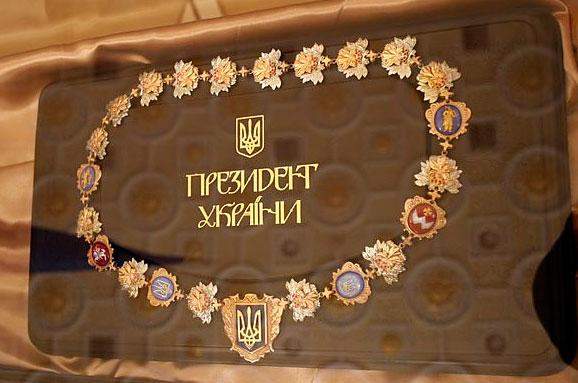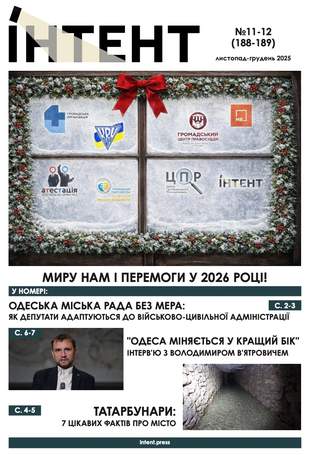Меню
Соціальні мережі
Розділи
When will the presidential inauguration take place: will the Verkhovna Rada be dissolved and early elections held?
This article also available in English2436

Photo: gazeta.ua
After the second round of the presidential election, the CEC is to establish the results of the campaign. The results of the second round are to be announced by the Central Election Commission no later than May 1.
The inauguration
Accordingly, on May 4, the voting protocol will be published in the Golos Ukrainy and Uriadovyi Kurier newspapers. This will be the official announcement of the results of the presidential election in the country.
Inauguration (from Latin inauguro - initiation into office) is a ceremony of assuming the office of the head of state or high clergy. "Inauguration" is a word of ancient Roman origin, when officials (rulers, judges, magistrates) were initiated into their positions by augurs, interpreting the will of the gods.
The inauguration of the newly elected President should take place no later than 30 days after the official election results are announced. Thus, by June 3, 2019, the newly elected President will take office and take the oath of office at a solemn meeting of the Verkhovna Rada of Ukraine.
Will the Verkhovna Rada be dissolved?
Currently, politicians and experts are actively discussing in the media whether Ukraine will hold early parliamentary elections.
It should be noted that, according to the law, the head of state has three reasons to dissolve the Verkhovna Rada early. In particular, according to Article 90 of the Constitution, the President has the right to terminate its powers if:
1) no coalition of parliamentary factions is formed in the Verkhovna Rada of Ukraine within one month in accordance with Article 83 of the Constitution
2) within sixty days after the resignation of the Cabinet of Ministers, the personal composition of the Cabinet of Ministers of Ukraine is not formed;
3) plenary sessions cannot begin within thirty days of one regular session.
The expertsinterviewed by DW note that it is impossible to comment seriously on the dissolution of the parliament without the text of the presidential decree. According to Andriy Magera, former deputy head of the Central Election Commission (CEC) of Ukraine, Article 90 of the Constitution of Ukraine provides for only three grounds for launching the election process. Namely, the absence of a ruling coalition in the parliament for a month, the inability to form a government within 60 days, and the inability to start plenary sessions during one parliamentary session.
However, the Speaker of the Verkhovna Rada, Andriy Parubiy, announced that the ruling coalition led by the Petro Poroshenko Bloc and the People's Front ceased to exist only on Friday, May 17. So MPs formally have another month to form a new majority. Even with the resignation of Prime Minister Volodymyr Groysman, which he announced on May 20, there will also be about two more months to form a government, and the plenary sessions of parliament are held as scheduled. Therefore, Magera's conclusion is unequivocal: "There are currently no constitutional grounds to terminate the powers of the Verkhovna Rada of the eighth convocation."
In its open statement, the Reanimation Package of Reforms (RPR) NGO points out that the president could theoretically have grounds to terminate the powers of the eighth convocation only from June 16, a month after Parubiy's statement. However, in practice, this cannot be done, as early termination of the Rada's powers is impossible during the last six months of the MPs' term, meaning that they will be immune from dissolution as early as May 27. That is why the RPR called on Volodymyr Zelenskyi to refuse to terminate the powers of the Parliament in an "unconstitutional manner and in the absence of grounds for this."
Theoretically, Volodymyr Zelenskyi could circumvent this obstacle with the help of a court decision that would record the fact of the coalition's collapse. Mykhailo Zhernakov, Chairman of the Board of the DEJURE Foundation, calls this scenario quite realistic. "The relevant lawsuit was registered in the notorious Kyiv District Administrative Court, and it is hardly a coincidence," the expert notes. Recent decisions of this court, in particular, to cancel the nationalization of Privatbank or to stop Poroshenko's appointment of members of the High Council of Justice, indicate that this court is already signaling its readiness to act in the interests of the new government, concludes Zhernakov. According to him, the court's decision could theoretically be appealed, which would delay its entry into force, but this will not prevent Zelenskyy from issuing a decree dissolving the parliament, simply stating the grounds for it - it will come into force immediately after publication.
In this case, the RPR calls on MPs to immediately raise the issue of the constitutionality of the presidential decree on the early termination of the Verkhovna Rada's powers with the Constitutional Court of Ukraine. However, the CEC warns that this will not prevent the elections. "According to the current legislation, once the election process has begun, no court decision can stop it. As soon as the decree (by the president to dissolve the Verkhovna Rada - Ed.) is made public, we will be in the election process the next day," CEC Secretary Natalia Bernatska said after Zelensky's inauguration.
According to Zhernakov, Zelensky's decision can be legally assessed only after it is published. But in his opinion, it will in any case have high public legitimacy, and therefore it will be quite difficult to oppose it. "After all, the real existence of the coalition has long been questioned, and given the new president's high ratings and the anti-rating of the Verkhovna Rada, court decisions that have very little public support are unlikely to be accepted by the public," the expert says.









